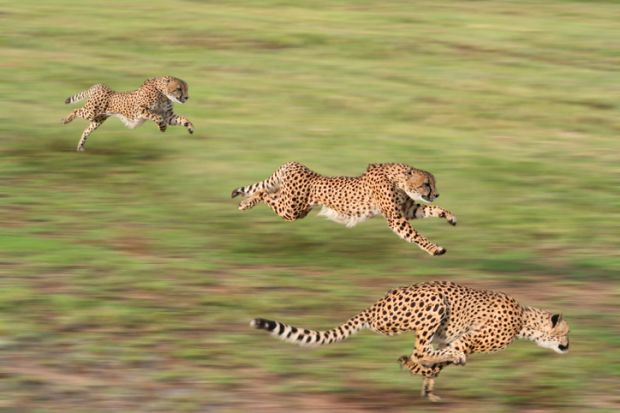The gap between the US and China in a key list of scientists producing the most-cited research in the world is shrinking rapidly, the latest data suggest.
One in eight people on the 2020 list of highly cited researchers, which identifies scientists who published multiple Web of Science papers ranked in the top 1 per cent for citations from 2009 to 2019, are now based in mainland China.
Although US-based researchers still make up 41.5 per cent of the 6,167 people on the list, produced by Clarivate, their share has dropped almost 3 percentage points from last year while China’s share is up almost 2 percentage points (from 10.2 per cent to 12.1 per cent).
Overall, China now has 770 highly cited researchers – combining those identified in each of 21 separate disciplines as well as a special “cross-field” category – a number that has leapt 60 per cent in just two years.
It also now has its first university in the top 10 institutions by the number of highly cited researchers, with Tsinghua University rising 10 places from 19th to ninth from last year. Harvard University still has the most scientists on the list, with 188.
In a report accompanying the list, Clarivate says that the “headline story” was “one of sizeable gains for mainland China and large losses for the United States, which reflects a transformational rebalancing of scientific and scholarly contributions at the top level through the globalization of the research enterprise”.
The number of highly cited researchers based in the UK has remained stable, with 514 people on the list – 8 per cent of the total. However, the gap between the UK – which was already overtaken by China last year – and other countries is closing. For instance, Germany now has 345 people on the list, a 5.4 per cent share, while Australia stands at 305 or a proportion of 4.8 per cent.
“Australian research institutes continue to punch above their weight,” Clarivate says, given that the size of its population was much lower than other countries in the top five. “Australian research institutions appear to have recruited a significant number of highly cited researchers in recent years while also increasing their number of homegrown talent.”
This year’s list includes 26 Nobel laureates, including three announced earlier this year: Emmanuelle Charpentier and Jennifer Doudna (chemistry) and Reinhard Genzel (physics).
A total of 3,896 researchers were selected for their performance in the 21 different fields, and 2,493 for cross-field performance, with a number of scientists qualifying in more than one discipline.
Nine researchers were recognised as being highly cited in three or more different fields, including four based in the US, two in China, two in Europe and one in South Korea.
Register to continue
Why register?
- Registration is free and only takes a moment
- Once registered, you can read 3 articles a month
- Sign up for our newsletter
Subscribe
Or subscribe for unlimited access to:
- Unlimited access to news, views, insights & reviews
- Digital editions
- Digital access to THE’s university and college rankings analysis
Already registered or a current subscriber? Login









